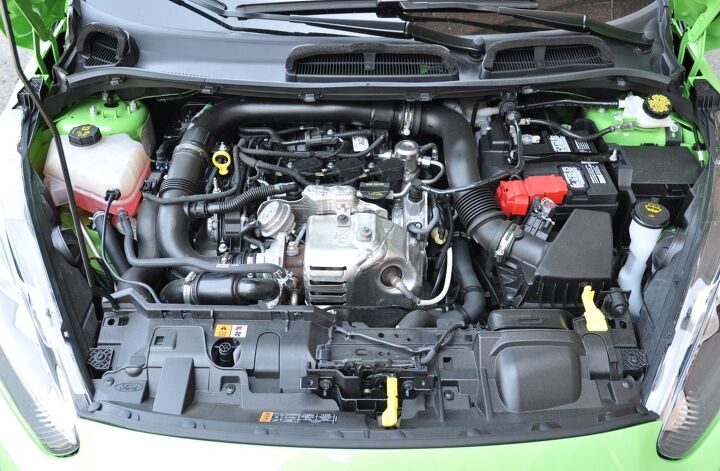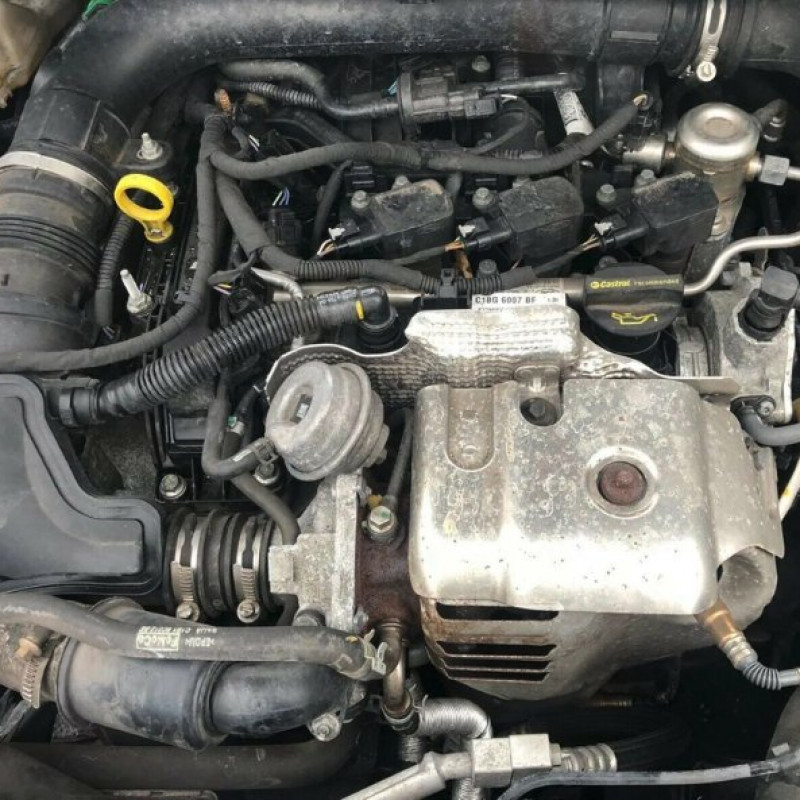How a Ford Fiesta Engine Tune-Up Can Improve Your Car’s Performance
How a Ford Fiesta Engine Tune-Up Can Improve Your Car’s Performance
Blog Article
The Future of Engines: Developments Driving Lasting Power Solutions
As the vehicle sector navigates the vital transition towards sustainability, the future of engines is significantly specified by groundbreaking technologies. Electric engine innovations, along with appealing growths in hydrogen fuel cells and biofuels, are improving the landscape of power solutions. The appearance of crossbreed systems further complicates this evolution, presenting both opportunities and challenges to lower emissions efficiently. Paired with the assimilation of expert system in engine layout, these technological strides raise vital questions regarding their long-lasting practicality and influence on conventional paradigms. What might this imply for the market and customers alike?
Electric Engine Advancement
The evolution of electric engine advancements signifies a critical change in the auto and aerospace industries, driven by the immediate demand for sustainable options to nonrenewable fuel sources. This transition is defined by considerable improvements in battery technology, power electronic devices, and electric motor style, which collectively boost the performance and efficiency of electrical engines.
Recent innovations have actually resulted in the production of lighter, a lot more energy-dense batteries, such as lithium-silicon and solid-state batteries, which assure longer varieties and much shorter billing times. Additionally, improvements in electric motor performance, such as making use of long-term magnets and advanced cooling systems, make it possible for electric engines to run efficiently under differing conditions. These enhancements not just improve vehicle efficiency however additionally add to a reduction in total energy usage.
Additionally, the combination of sophisticated software program algorithms has optimized energy administration in electrical cars, permitting regenerative braking and predictive charging techniques. As producers progressively welcome electric propulsion, the aerospace and auto fields are experiencing a standard shift in the direction of greener technologies. This development not only satisfies governing demands but likewise aligns with customer choices for environmentally friendly transportation solutions, solidifying electrical engines as a foundation of future lasting wheelchair.
Developments in Biofuels
As the vehicle and aerospace markets increasingly focus on sustainable energy sources, improvements in biofuels become a corresponding remedy to electrical engines. Biofuels, originated from organic products such as crops, waste, and algae, present an ingenious opportunity for decreasing greenhouse gas exhausts and dependence on fossil gas.
Recent study has concentrated on enhancing the efficiency and sustainability of biofuel manufacturing. Second-generation biofuels utilize non-food feedstocks, minimizing competitors with food supply and minimizing ecological influence. Advancements in synthetic biology have made it possible for the engineering of bacteria to create biofuels much more successfully, leading to higher returns and reduced manufacturing expenses.
In addition, the advancement of drop-in biofuels enables seamless integration into existing facilities, enabling a smoother change for sectors typically based on nonrenewable fuel sources. ford fiesta engine. These gas can be used in current engines without modifications, facilitating their adoption across different industries
Investments in biofuel innovation, along with supportive plans, are crucial to drive technology and scalability. As the worldwide neighborhood seeks to deal with climate change, biofuels use a practical, immediate solution that lines up with the overarching goal of sustainability in transport and aviation.
Hydrogen Fuel Cell Modern Technology
A growing number of scientists and business check my reference are checking out hydrogen fuel cell technology as a practical alternative to standard source of power in transportation and energy systems. This modern technology transforms chemical energy from hydrogen right into electrical energy with an electrochemical reaction, with water as the only by-product, making it an eco-friendly option.
The core of hydrogen fuel cells is the fuel cell pile, where hydrogen particles are divided right into protons and electrons. The flow of electrons produces electrical energy, while protons move via a membrane to integrate with oxygen from the air, creating water. This process leads to high performance and low exhausts, placing hydrogen fuel cells as an important player in the transition to sustainable power.
Significant improvements have actually been made in boosting the resilience and efficiency of gas cells, along with decreasing costs via cutting-edge manufacturing strategies. The advancement of hydrogen production approaches, such as electrolysis powered by renewable power resources, boosts the sustainability of the total system. As facilities for hydrogen refueling expands and manufacturing approaches end up being more reliable, hydrogen fuel cell innovation holds excellent guarantee for decarbonizing various sectors, including sturdy transportation and fixed power generation.
Crossbreed Systems and Their Influence
Hybrid systems stand for a substantial development in lasting engine technology, combining standard interior combustion engines with electrical propulsion to optimize energy effectiveness and minimize discharges (ford fiesta engine). This dual approach permits cars to use both source of power, allowing better flexibility in energy intake and decreasing dependence on nonrenewable fuel sources

In addition to environmental advantages, crossbreed systems use consumers a sensible transition in the direction of totally electrical lorries. They alleviate range anxiety by integrating the benefit of gas with the advantages of electrical propulsion, making them an eye-catching alternative for a wider target market.
The Role of AI in Engine Style
Leveraging advanced why not find out more formulas and artificial intelligence methods, the auto sector is progressively incorporating expert system (AI) right into engine style procedures. AI enhances the effectiveness and efficiency of style by analyzing large datasets to recognize optimal configurations and efficiency specifications. This capability allows engineers to mimic various operating problems and predict engine habits under several scenarios, substantially lowering the moment and expense linked with conventional prototyping methods.
Moreover, AI promotes the development of advanced products and burning processes tailored for sustainability. By maximizing fuel performance and lessening exhausts, AI-driven designs straighten with worldwide efforts aimed at decreasing the carbon footprint of vehicle engines. Artificial intelligence formulas can additionally forecast upkeep needs, resulting in enhanced reliability and longevity of engine components.
Additionally, AI is crucial in the combination of electrification technologies, such as crossbreed systems, where it can maximize battery monitoring and power recuperation processes. As the market moves in the direction of more lasting power services, the role of AI in engine design becomes progressively crucial, driving technology and enhancing the performance of future engines. Inevitably, the partnership in between AI and engine design declares a brand-new period of smarter, cleaner, and extra effective automobile innovations.

Verdict
Finally, the future of engines is being shaped by a merging of cutting-edge modern technologies that prioritize sustainability. Electric engine developments, biofuel growths, hydrogen fuel cells, and crossbreed systems collectively contribute to a significant reduction in discharges and ecological impact. Additionally, the integration of expert system in engine design enhances effectiveness and performance. These transformative remedies emphasize a commitment to developing a cleaner, extra lasting automobile landscape, eventually profiting both society and the setting.
Electric engine innovations, together with encouraging developments in hydrogen gas cells and biofuels, are improving the landscape of power services. In addition, renovations in electric motor efficiency, such as the usage of long-term magnets and progressed cooling down systems, allow electrical engines to operate efficiently under varying conditions. By maximizing fuel efficiency and reducing discharges, AI-driven layouts line up with worldwide efforts aimed at reducing the carbon footprint of automotive engines. As the sector moves in the direction of even more sustainable power solutions, the role of AI in engine style ends up being progressively my latest blog post essential, driving innovation and improving the efficiency of future engines. Electric engine advancements, biofuel developments, hydrogen fuel cells, and crossbreed systems collectively contribute to a considerable decrease in exhausts and ecological effect.
Report this page